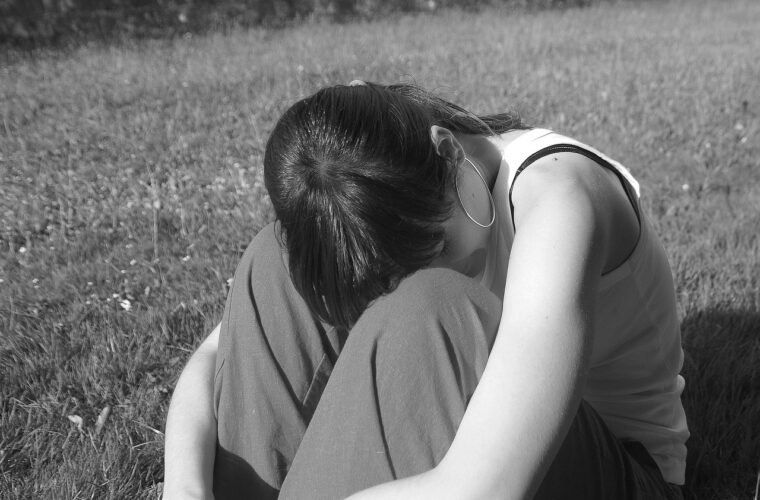In the therapy room, conversations about friendship come up more often than you might expect. People often assume therapy is where we talk about parents, partners, or personal struggles — and it is. But it’s also a place where people grieve the slow fade of a close friend, process hurt over feeling sidelined, or unpack confusion about a friendship that used to feel easy and nourishing but now leaves them anxious or unseen.
Friendships are one of the most meaningful — and most misunderstood — parts of our emotional lives. When they break down, the loss can feel deeply personal and strangely invisible. There are no guidebooks for what to do when a friend drifts away, forgets your birthday (again), or repeatedly prioritizes their partner over your connection. So let’s talk about why friendships falter — and how we can care for them better.
Why Do Friendships Break Down?
Friendships, like any relationship, need time, attention, and emotional honesty to thrive. When those things start to slip, it’s often not one big dramatic betrayal that ends the friendship, but a series of small missed moments, misunderstood intentions, or unmet needs.
1. Life Changes
One of the most common reasons for a friendship shift is simply life itself. People move, change jobs, start families, or enter new romantic relationships. I’ve had clients say, “We used to speak every day, but now I feel like I’m just background noise.” These transitions aren’t inherently bad, but they require friendships to stretch and adapt — and that doesn’t always happen smoothly.
2. Imbalance and Unspoken Expectations
Sometimes, one friend gives more than they get — emotionally, practically, or energetically. This might sound like: “I’m always the one making plans,” or “She only calls when she needs something.” Resentments can build quietly over time, especially if we don’t feel safe naming them.
3. Avoiding Difficult Conversations
Many friendships break not because of conflict, but because of the avoidance of it. One client once told me, “I was upset for months, but I didn’t want to rock the boat. Eventually, I just pulled away.” We often assume friendships should feel easy and conflict-free, but real closeness sometimes requires difficult but caring conversations.
4. Changing Values or Priorities
We all evolve. Sometimes, we simply grow in different directions. A friendship that once felt inseparable in your twenties might feel misaligned a decade later. That doesn’t mean it wasn’t real — just that it may no longer fit.
5. Being Sidelined for a Romantic Partner
This one comes up a lot in therapy. I’ve heard from clients who feel discarded the moment their friend starts a new relationship. One client described how her best friend would hang up mid-call if her boyfriend rang: “It was like I didn’t matter anymore. She never would’ve done that a year ago.”
Romantic relationships are important, but so are friendships — and being consistently put second can leave a friend feeling rejected and hurt. These situations often require honest communication to restore balance.
How to Raise Concerns Without Causing Rupture
If something your friend is doing is hurting you, it can feel risky to say so. Many of us fear we’ll seem too needy or dramatic. But sharing your feelings can actually strengthen the relationship — if done with care.
Here’s how to approach it:
-
Choose the right moment – Not in the middle of the behaviour, and not when emotions are running high.
-
Speak from your own experience – Use “I” statements: “I felt a bit hurt when you hung up the other day,” instead of “You’re always prioritising him over me.”
-
Name what you value – Reaffirm the friendship: “I love talking with you and really value our time — that’s why it hurt.”
-
Be open to their side – Maybe they didn’t realise. Maybe they’re under pressure themselves.
These conversations can feel tender, but they often reveal the strength of the friendship. A true friend might not respond perfectly — but they’ll care that you were hurt and want to understand.
How Do You Actually Start the Conversation?
Should it be in person or by message?
If the friendship is emotionally close and the issue feels significant, in-person or voice-based conversations are best. They allow for tone, body language, and a feeling of connection that text can’t always hold.
But if the idea of a face-to-face feels overwhelming — or if logistics make it tricky — a thoughtful message can absolutely be enough. The key is warmth and clarity, not perfection.
How to “prime” a friend for a harder conversation
If you’re meeting in person or calling, give a gentle heads-up to help your friend feel prepared and safe:
“Hey, there’s something I’ve been thinking about that I’d love to talk through with you. Nothing dramatic, but it’s important to me. Could we catch up soon?”
Or:
“Would you be open to a quick chat sometime this week? I just want to talk through something that’s been on my mind — I value you and our friendship and think it’s worth saying.”
If you’re messaging, here’s a gentle template you can adapt:
📩 Sample Message to Start the Conversation:
“Hey — I wanted to share something that’s been on my mind. The other day when we were chatting and you hung up to take a call, I felt a bit pushed aside. I know that probably wasn’t your intention at all — and I really value our time together — so I just wanted to be honest about how that moment landed with me. I care about our friendship and wanted to say something rather than let it sit.”
This kind of message avoids blame, keeps the focus on your experience, and invites reconnection rather than conflict.
Nurturing Friendships Before They Fray
So much of what keeps friendships strong are the small, consistent acts of care:
-
Remembering birthdays or special anniversaries
-
Checking in during stressful times
-
Celebrating their wins, even when your own life is hard
-
Being emotionally present, not just physically available
Some of the most lasting friendships I’ve seen are those where both people are willing to keep showing up for each other — even when life is messy or inconvenient.
When It’s Time to Let Go
Not every friendship can be saved. If you’ve tried to repair, been honest about your needs, and still feel consistently dismissed or hurt, it might be time to gently step back.
Grieving a friendship can feel ambiguous, like mourning something intangible. But it’s okay to feel sad. Therapy can be a helpful space to process this kind of loss — and to understand what you want to carry forward into future relationships.
In Closing
Friendships are not just a bonus in life — they’re central to our sense of connection, belonging, and joy. They deserve the same thoughtfulness we give to romantic or family relationships.
If a friendship of yours feels strained, you’re not alone. These things are complicated. But with openness, compassion, and a little courage, many friendships can bend without breaking — and even grow stronger through the process.
And if some do break, that’s okay too. Every relationship teaches us something about who we are and what we need. Be kind to yourself as you learn.










